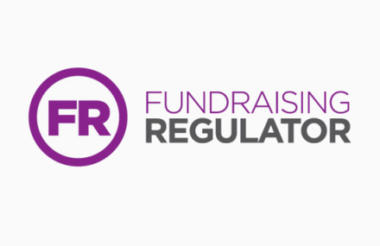Mandy Johnson, chief executive of the Small Charities Coalition, responds to Lord Grade, chair of the Fundraising Regulator, who described charities that have not responded to requests to pay the levy as "unprofessional".
Yesterday, I received correspondence from the chief executive of a small charity that has been asked to pay a levy to the Fundraising Regulator. She reached out to the Small Charities Coalition because she was frustrated by the aggressive tactics employed to convince her charity to pay. I am not in the business of “naming and shaming” in a way that may bring undue attention to a charity so, for the purposes of this article, I will call the chief executive “Meera” and her charity will remain anonymous.
Meera is an experienced professional who successfully runs a small charity. The charity has two members of staff, delivers huge impact and does not employ a full-time fundraiser.
Meera’s charity represents one of many organisations that are yet to pay the fundraising levy. According to Lord Grade (chair of the Fundraising Regulator) Meera, and the other charities in charities that have not paid and have not responded, are “unprofessional”. I disagree.
At Small Charities Coalition, we have been highlighting to the Regulator a different side of the story. Lord Grade’s comment suggests they have not been listening.
What could charities not paying mean?
Well it may mean that, like Meera’s charity, they have an income under £1m but, four years ago, spent more than £100k on fundraising. They may be one of the hundreds of small charities that the Fundraising Regulator is aware would be affected by the levy but chose not to engage with.
At Small Charities Coalition, we responded to the Regulator’s consultations, and met with their staff, to highlight the fact that small charities were being caught by their levy. We suggested they contact these small charities at the point of consultation, rather than simply sending out invoices. This did not appear to happen. Now we are hearing from small charities of aggressive letters and requests for payment within a short period of time. If we are talking about unprofessionalism, my finger would be pointing in a different direction.
So why wouldn’t small charities be paying?
1. The Fundraising Regulator is using inaccurate data
Meera’s charity has been caught by the levy because the Fundraising Regulator is using is out of date data. Four years ago her charity invested more than usual in fundraising events; this level of spend has not been repeated since. Based on current fundraising spend, Meera should not have been contacted by the Regulator at all. Yet her charity is now at risk of being named and shamed and Lord Grade is categorising her as “unprofessional” for not paying a voluntary levy that should not apply to her organisation.
Out of date data would be difficult to justify at the best of times, but is particularly inappropriate given that over the last five years small charities have seen significant funding cuts, and volatility in income, which have led to many of them changing their fundraising practices.
The inappropriate mechanism for calculation is compounded by the lack of appeals process. Each response is currently taken on a case by case basis; costing small charities time and resource that could be better spent elsewhere.
2. Small charities have not heard of the regulator
At the recent Fundraising Preference Service launch, Lord Grade said he was surprised charities had not heard of the Fundraising Regulator. He recognised this as a problem but didn’t engage with the solution. Many small charities, particularly those that do not do individual fundraising, may be simply unaware of the existence of the Fundraising Regulator. This correlates with the findings we had from a survey that we collaborated on last year - 45 per cent of small charities told us they’d never heard of the Fundraising Regulator.
To suggest that a charity is unprofessional because it is not handing over its money to an organisation it hasn’t heard of sounds like best practice, rather than unprofessionalism, to me.
3. Small charities have not been effectively engaged with
In the rush to ensure that the Fundraising Regulator secured the funds required to sustain itself, it failed to engage with the issues facing small charities. The Fundraising Regulator was set up in response to negative press about fundraising issues within a few larger charities. The scope of their approach does not appear to have adjusted. The benefits of regulation need to be tailored to convince small charities that this is something that is worth them paying for. By failing to engage with small charities before sending out aggressive letters, this opportunity has been missed.
So what next?
It is professional for small charities, like Meera’s, to ensure that their funds are spent appropriately - and right now it is hard to demonstrate why small organisations should engage with a system that is not responding to its needs. The Fundraising Regulator needs to show a clear offer for small charities, engage better with the small charities community - and specifically clarify the process that they have to undertake to reach out to small charities impacted by the levy.
A start would be to state how many small charities - with incomes under £1m - are those who have not paid. And not to do this by naming them publicly.
Aggressive fundraising tactics were what the regulator was set up to stop, so why are they engaging them when talking to small charities?
Related articles












